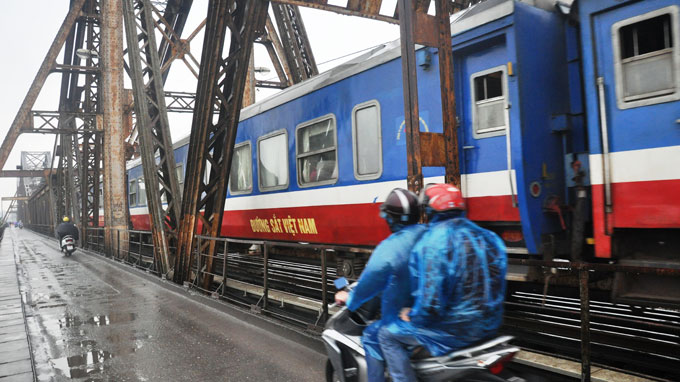Eight projects in Vietnam funded by the World Bank’s official development assistance (ODA) have been included in a blacklist due to delays in implementation and disbursement.
The most notable one is the Hanoi Urban Transport Development project, which has secured its place on the list for 60 months after being carried out for seven years with a disbursement rate of only 30 percent, according to the Saigon Times newspaper.
The next one is a project to modernize tax administration with respective rates of 34 months, 6.8 years and two percent, followed by a renewable energy development project (27 months, 5.2 years, and 29 percent).
The remaining projects are the modernization of the financial sector and information management systems; the Vietnamese German University; waste management support; industrial waste management, and technical assistance for project preparation.
"The number of projects included in the ‘blacklist’ is increasing, and the progress of those projects has become increasingly slow," Keiko Sato, portfolio operations manager for the WB in Vietnam, said at an internal meeting held in Hanoi earlier this week.
The general problem with these projects is that their implementation phase is not ready, the feasibility report and manual for operations have yet to be completed at the start of implementation, and land clearance has not been done, Sato added.
There are also other reasons for the slow progress of the projects; for example developers have not reached consensus on the design and expected results; or lack of or delay in allocated capital or counterpart funding, especially the land clearance and resettlement process.
Other issues include unclear competence for making decisions, which leads to slowness in offering solutions to project problems. "Even some very small changes also require the senior management level for approval," Sato said.
Tighter monitoring mechanism needed
Earlier, a report from the National Steering Committee on ODA and preferential loans, signed by a Deputy Minister of Planning and Investment, said the disbursement of the official aid in 2014 hit a record of over US$5.6 billion, claiming "the disbursement has significantly improved," the Saigon Times newspaper reported.
The report noted that the large-scale ODA donors continue to maintain a high level of disbursement including Japan (JICA) with $1.773 billion, the WB with $ 1.386 billion, and Asian Development Bank (ADB) with $1.058 billion.
Meanwhile, speaking at a meeting of the National Steering Committee on ODA with the participation of six international development banks held earlier this month in Hanoi, Deputy Prime Minister Hoang Trung Hai said the total value of undisbursed ODA capital for ongoing projects is very large, about $21 billion.
If there is only slow improvement in disbursement, Vietnam loses hundreds of millions of dollars of opportunity costs every year, he said.
Deputy Prime Minister Hai asked to review all of the delayed projects so that information on them can be passed to relevant state agencies as soon as possible.
He also asked for reports on the management and use of ODA to be submitted to competent authorities, especially the National Assembly (NA), as the NA is concerned with the problems of public debt and investment restructuring.
At the last session of the NA meeting held in Hanoi late last year, some NA delegates recommended the creation of a specialized body to monitor ODA use and implementation over fears ODA capital management is not tight.
NA deputy Le Thi Nga, from the northern province of Thai Nguyen, said that although ODA has made a positive contribution to the socio-economic development of the country for many years, there have been many scandals related to mismanagement in ODA use and implementation.
Notably, even though the country has its own inspection force, most of the scandals were detected by foreign parties, she added.
Like us on Facebook or follow us on Twitter to get the latest news about Vietnam!




















































